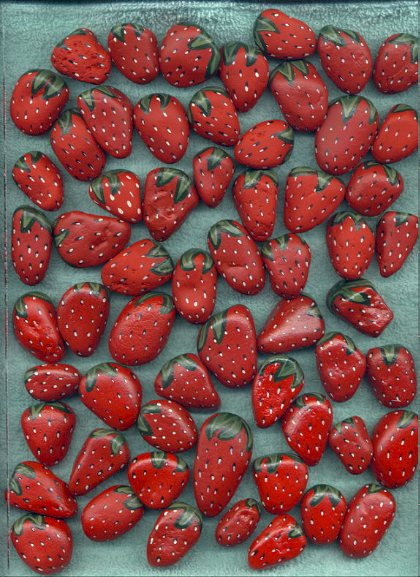The latest issue of Mother Earth News has an article on container
gardening that has advice for making your own potting soil mix out of
thoroughly rotted/composted sawdust and/or chipped bark:
 http://www.motherearthnews.com/organic-gardening/container-gardening-zm0z12amzhun.aspx
http://www.motherearthnews.com/organic-gardening/container-gardening-zm0z12amzhun.aspx
"If rotted until black, either material makes a wonderful growing
medium with excellent structure. Two parts rotted sawdust or chipped
bark to 1 part compost usually makes a good container mix. If you're
committed to growing container veggies, set aside a spot for these
materials to decay so you can start making your own potting soil in
the future."
There's a sawmill near us that's offering free sawdust and they'll even skip load it into our trailer.
I'm going to give this a try, as I am growing more and more in large
containers, for a variety of reasons:
--The south side of my yard is narrow and gravel-lined. Peppers,
tomatoes and other heat lovers really like growing in self-watering or
other large containers there.
-- I can reduce the amount of solanaceae that I have to rotate through
my beds if I grow my peppers only in containers (that leaves me
tomatoes and potatoes to juggle in my raised bed rotations) and they
do great in them.
-- I can tuck those extra artichokes or potatoes into the random
sunnier patches of the yard when I am out of bed space.
I like that the sawdust is renewable and not particularly carcinogenic
(vermiculite may have asbestos in it). I'm picking up extra containers
as I find them at thrift stores, going for the Rubbermaids only, as the less pliable plastics become brittle and break in a year or so's time.

One easy way to grow in containers, at least the smaller leaf and root
crops, is in milk crates lined with weed barrier (I"m using old
bedsheets, for lack of a better material).
http://www.urbivoreonline.com/2010/07/22/diy-milk-crate-container-garden/
I try to grow in containers that are at least 5 gallons, both for root
space and to minimize the chances of them drying out in less than a
day.
And if you want to put more work into it, there's always these great
self-watering containers to make:
 http://www.seattleoil.com/Flyers/Earthbox.pdf
http://www.seattleoil.com/Flyers/Earthbox.pdf
Happy growing!


